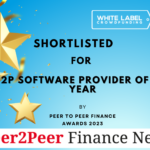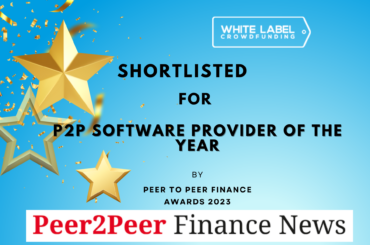The phrase ‘business prevention department’ is often used at any mention of ‘compliance’. This really comes as no surprise, considering that most people’s perception of compliance comes from large traditional firms where the compliance department is often a large and expensive part of the firm. The size of these departments and the stereotypical risk-adverse nature of compliance professionals have earned compliance its negative reputation.
The growth of FinTech firms around the world has led the demand for a new type of compliance mindset, and dare I say compliance professional. Any compliance professional who decides to get involved in the compliance of a FinTech start-up will probably need to adapt to doing business in a different way – or even completely rethink the way they manage compliance.
Working at or with a start-up is an exciting, exhilarating, stressful and sometimes scary experience. Change is constant, new ideas are aplenty and risk is the stimulant of choice. Not an environment that many would expect a compliance professional to be comfortable in. For those brave enough to step into this environment, here are a few tips on how to a) survive, b) add value and c) enjoy the ride.
Jump in head first
 The more you understand about the different areas of the business, the easier it is for you to be able to quickly and easily implement compliance requirements – and the more effective these are likely to be.
The more you understand about the different areas of the business, the easier it is for you to be able to quickly and easily implement compliance requirements – and the more effective these are likely to be.
Take the time to speak to different team members who hold various roles and responsibilities across a variety of departments; understand what they want and need to make their lives easier; and connect these with the objectives of compliance. Failure to understand how one department in a business interacts with another or even how one area of the business interacts with clients compared to another will mean that processes will have gaps and will be much harder to monitor.
If the teams within the business are dispersed across different office locations or just seated separately, it will be invaluable to you to take the time to regularly work as part of or near the team. Even if you cannot practically be of help to the team, being near enough to observe how they operate will help you inform your decisions, and will also allow you to provide much more valuable advice and feedback to senior management and the board.
Understand the ethos
 One size does not fit all. Walking into a start-up and hoping to apply big corporate strategy and thinking to the start-up is bound to fail and is likely to see you excluded from the fold, which will make getting the team’s acceptance and adoption of compliance strategies and processes near impossible.
One size does not fit all. Walking into a start-up and hoping to apply big corporate strategy and thinking to the start-up is bound to fail and is likely to see you excluded from the fold, which will make getting the team’s acceptance and adoption of compliance strategies and processes near impossible.
Take time to understand the ambitions of the firm, their culture and their practices – get to know what makes the firm tick. Taking time to understand these will be invaluable in getting buy-in from the team and will likely result in the implementation of compliance practices that are far more successful than taking a one size fits all approach.
Make change your friend
 FinTech by its very nature is change, and the pace and frequency of change in a start-up is second to none. Some compliance professionals are often seen to believe that change is a four-letter word and are uncomfortable at the mere thought of it. If you are unable to accept change, working with a start-up is probably not for you.
FinTech by its very nature is change, and the pace and frequency of change in a start-up is second to none. Some compliance professionals are often seen to believe that change is a four-letter word and are uncomfortable at the mere thought of it. If you are unable to accept change, working with a start-up is probably not for you.
Be open minded, flexible and creative when presented with a potential change in product strategy or process. Listen to and understand the reasons behind the need or idea for the change, identify any regulatory restrictions or hurdles, and look for ways to implement the changes in a compliant way with the least disruption to process or operations.
Consider that change may actually make your role easier not harder. A change in IT systems, for example, might allow you to automate some processes or get better quality MI; a restructuring of an entire process might cut out a lot of unnecessary admin work and risk. Getting involved in making the change will likely allow you the opportunity to ensure that the change is to your advantage.
Consider the possibility of change in the creation of your systems and processes. Thinking ahead about the needs of the business, and its anticipated growth and goals will ensure that the compliance processes that you embed have longevity and the room to grow which will ultimately result in closer adherence to your policies and processes.
Manage the entrepreneur
 The entrepreneur/s or founder/s of a FinTech company with regulatory obligations can often be both the biggest asset and the biggest risk to the business. They are typically ‘the ideas’ person; the person with the most energy, passion and desire to see the firm succeed – and are often the seen as The Firm. Managing the entrepreneur in a FinTech company is arguably the biggest challenge for a compliance officer, as entrepreneurs are ‘doers’ and often ‘do’ without stopping to consider the regulatory implications of their ideas and actions. If a compliance officer is going to be successful in a FinTech company, they need to find a way in which to manage the entrepreneur’s enthusiasm and balance this with compliance requirements.
The entrepreneur/s or founder/s of a FinTech company with regulatory obligations can often be both the biggest asset and the biggest risk to the business. They are typically ‘the ideas’ person; the person with the most energy, passion and desire to see the firm succeed – and are often the seen as The Firm. Managing the entrepreneur in a FinTech company is arguably the biggest challenge for a compliance officer, as entrepreneurs are ‘doers’ and often ‘do’ without stopping to consider the regulatory implications of their ideas and actions. If a compliance officer is going to be successful in a FinTech company, they need to find a way in which to manage the entrepreneur’s enthusiasm and balance this with compliance requirements.
Don’t make it a battle of the wills. The best way to do this is to rationalise with the entrepreneur in a way they understand; this is done by demonstrating the benefits of compliance to the business – demonstrate how compliance adds value, not cost. Present solutions not problems.
Be a ‘doer’ yourself. In a small business, everyone is required to pull their weight. Get involved when implementing new policies or making changes; do not be a helicopter compliance consultant constantly dropping work on a team that might already be overstretched. Check in with the entrepreneurs regularly, keep abreast of their ideas for the business and discuss any regulatory considerations in advance wherever possible. Keep them informed of regulatory developments that may be applicable to them. Changes in regulation do not always mean more restrictions and rules but can also present opportunities; if you are able to identify these opportunities for the entrepreneur, you will become invaluable to the business. When presenting Management Information to the entrepreneur or senior management, present it in such a way that they can easily make sense of it, to help them immediately understand the areas of their business.
Remember, aiming for zero risk in any company is a futile and pointless objective, particularly in a small business. To be effective as a compliance officer or consultant working with a small business, you will need to be prepared to face challenges, be pushed to find solutions you haven’t used or tested before and even welcome a little risk.














